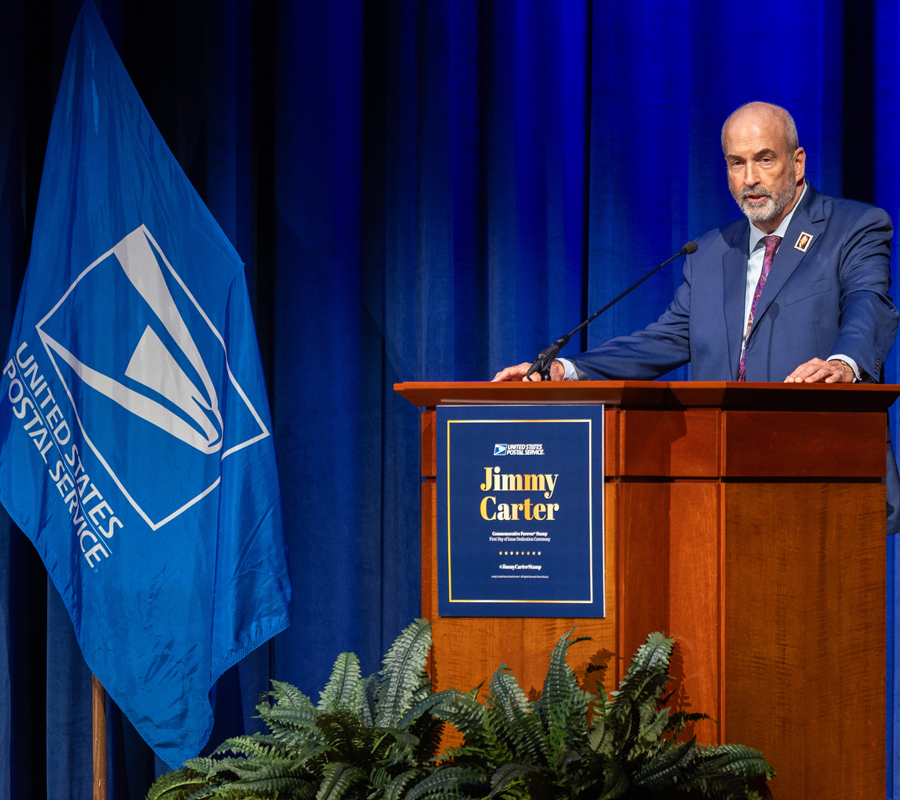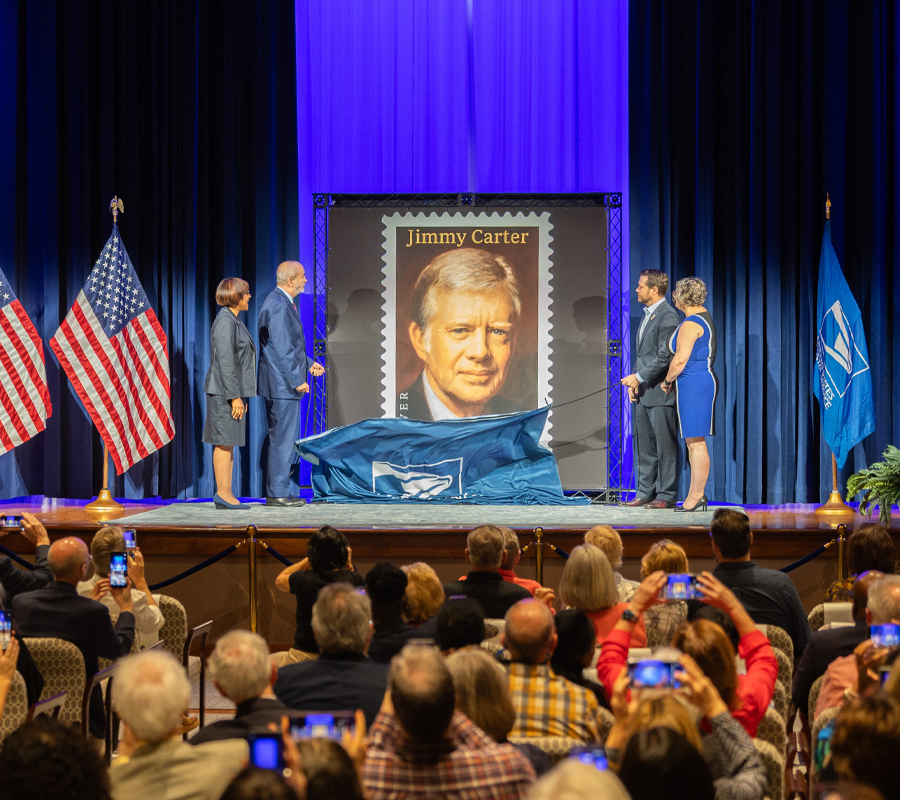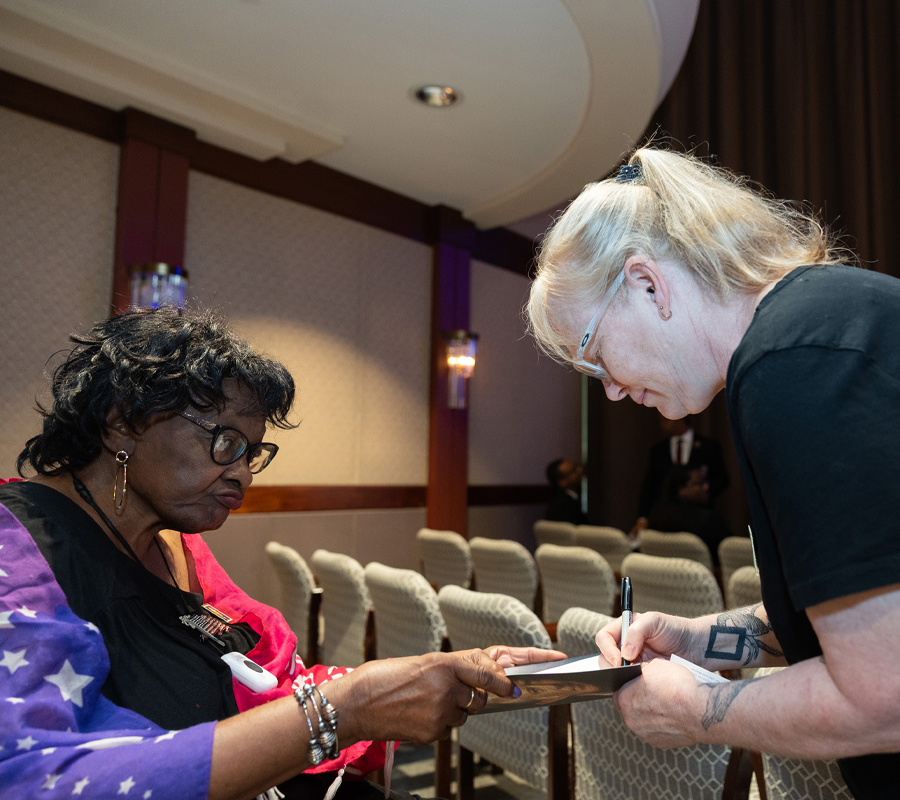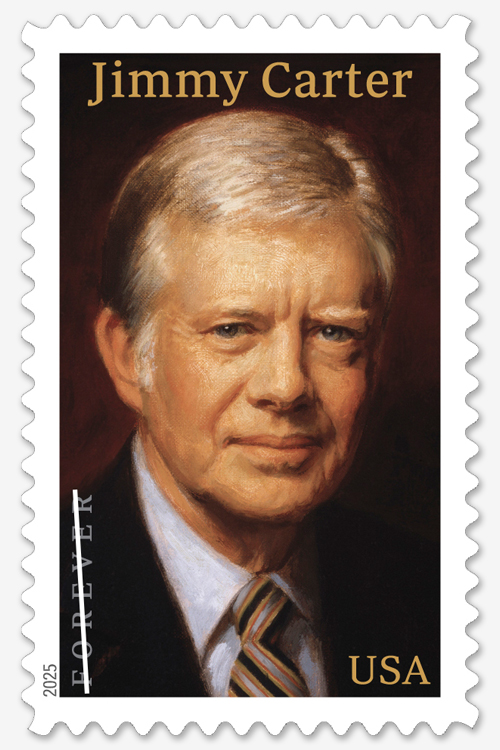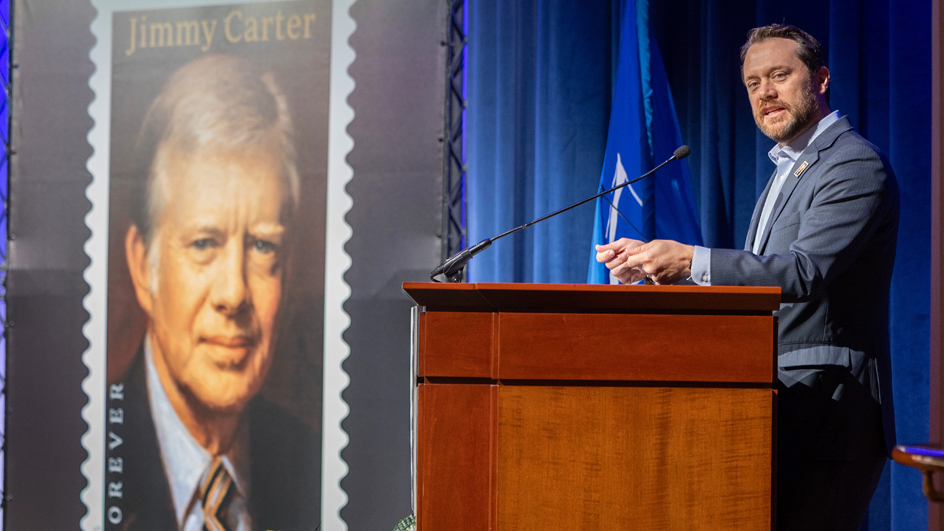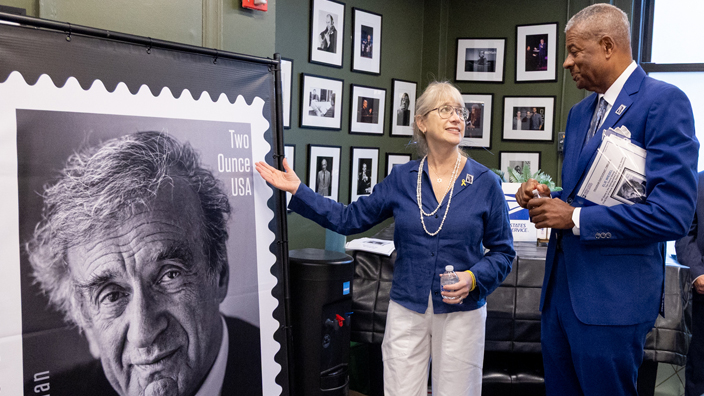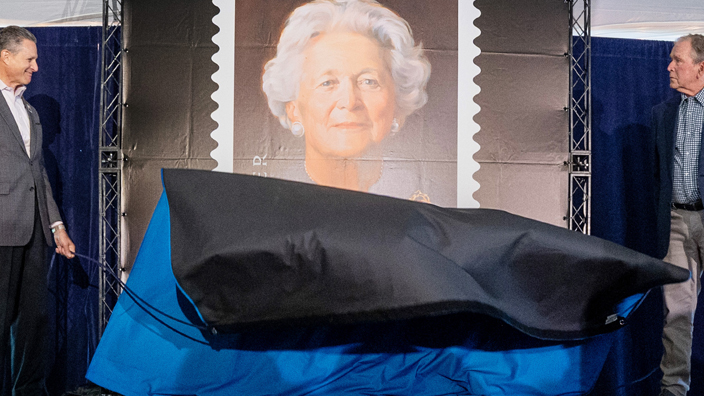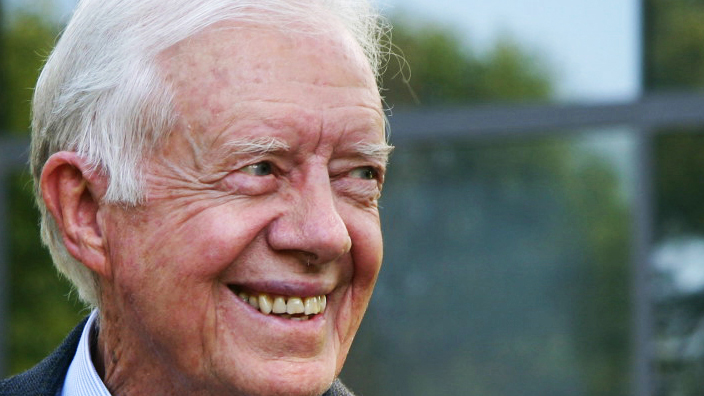The Postal Service dedicated its stamp honoring Jimmy Carter on Oct. 1, where the 39th president was hailed for his lifetime of extraordinary service.
Carter (1924-2024) guided the nation through an energy crisis, economic struggles and international tensions. After his presidency, he worked to improve the lives of people around the world.
“President Carter’s legacy challenges us to think differently about success and leadership. In a world that often measures worth by wealth and power, he reminded us that true greatness lies in service to others,” Thomas Marshall, the Postal Service’s general counsel, said during the stamp dedication ceremony in Atlanta.
Carter was born in Plains, GA — a town of just 600 people — the start of an unconventional path to the presidency. A graduate of the U.S. Naval Academy who served on nuclear submarines, he returned to Georgia to take over the family farm after his father’s death.
From local politics to the Georgia governor’s mansion, and then to the White House in 1977, Carter brought with him an outsider’s perspective and a commitment to doing what he believed was right, regardless of the political cost.
His administration also achieved many milestones, including the Camp David Accords, which led to a peace treaty between Egypt and Israel, and the establishment of diplomatic relations with China, which ended decades of isolation.
Carter also made human rights a central focus of U.S. foreign policy, saying: “America did not invent human rights. In a very real sense, it’s the other way around. Human rights invented America.”
Perhaps the most remarkable chapter of Carter’s life began after he left the White House.
“Rather than retreating to a comfortable retirement, he and his wife, Rosalynn, embarked on what many consider to be the most consequential post-presidency in American history,” Marshall said.
Through the Carter Center, founded in 1982, the former president worked tirelessly to advance human rights, monitor elections and eradicate diseases. For decades, well into his 90s, he continued building homes with Habitat for Humanity, hammer in hand, side by side with volunteers.
“He showed us true leadership means getting your hands dirty in the service of others, and it spoke volumes about his values and priorities,” Marshall said.
The Norwegian Nobel Committee awarded Carter the Nobel Peace Prize in 2002 for his decades of work promoting peace, democracy and human rights.
Joining Marshall for the ceremony were Meredith R. Evans, director of the Jimmy Carter Presidential Library and Museum; Beth Davis, chief operating officer of the Carter Center; grandson Jason J. Carter, chair of the Carter Center’s board of trustees; and Crystal Edmonson, broadcast editor of the Atlanta Business Chronicle, who served as emcee.
Ethel Kessler, an art director for USPS, designed the stamp featuring a 1982 oil-on-linen painting by Herbert Abrams, who used it to prepare for the official White House portrait.
The Forever stamp is available in panes of 20 at Post Offices and on usps.com.
Marshall said that in Carter’s life, “we see a blueprint for how to live with purpose, how to lead with integrity and how to make a difference that extends far beyond our own lives. He showed us that the presidency might be the highest office in the land, but the highest calling is simply to serve others with compassion and humility.”
Email us your feedback. Your comments could be included in our “Mail” column.
